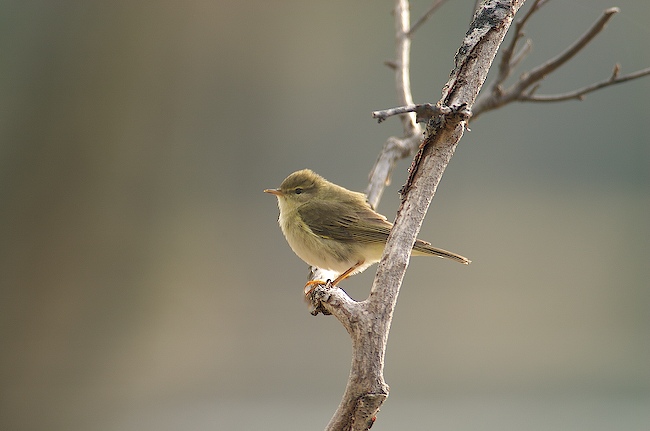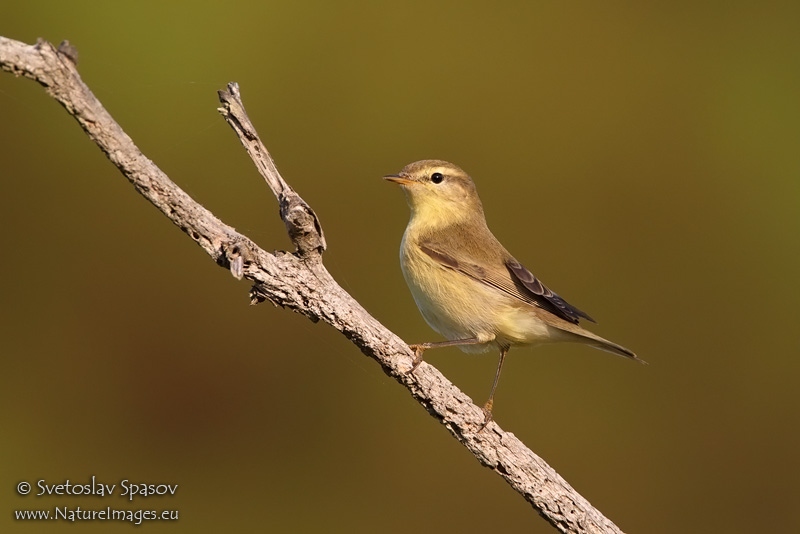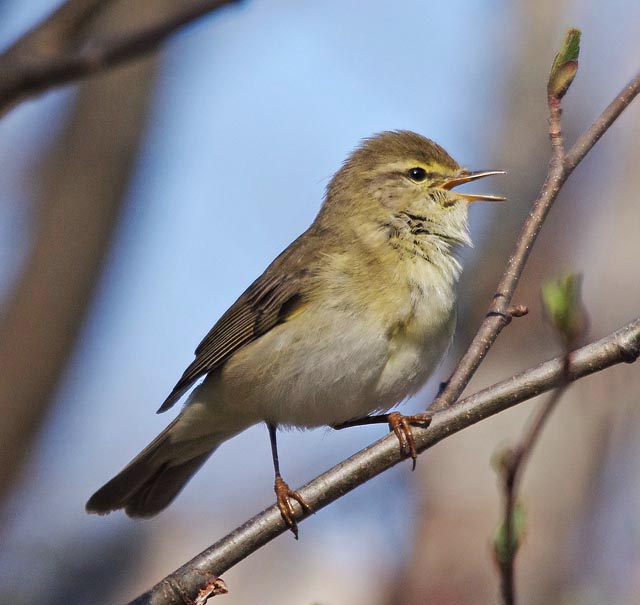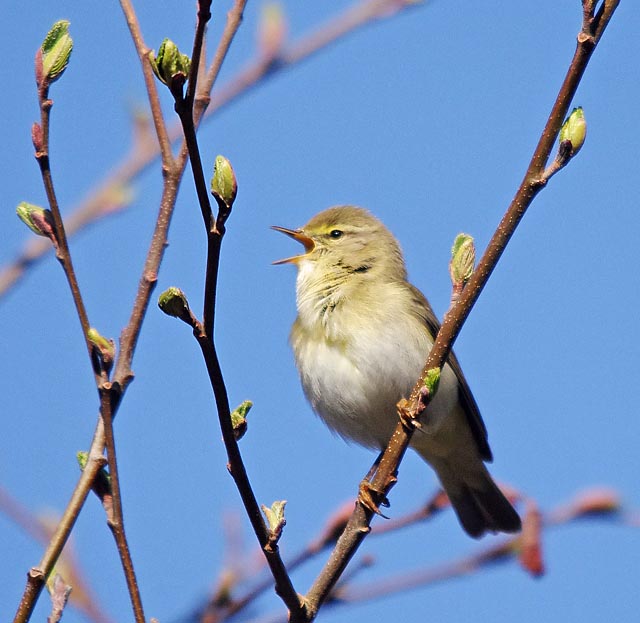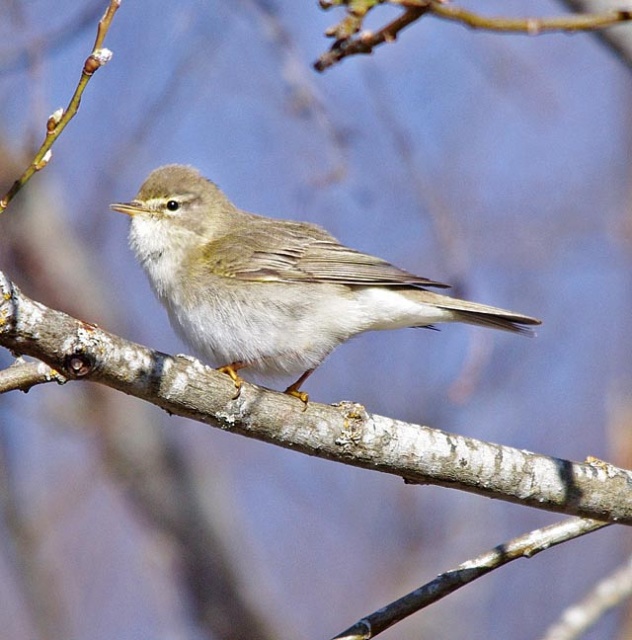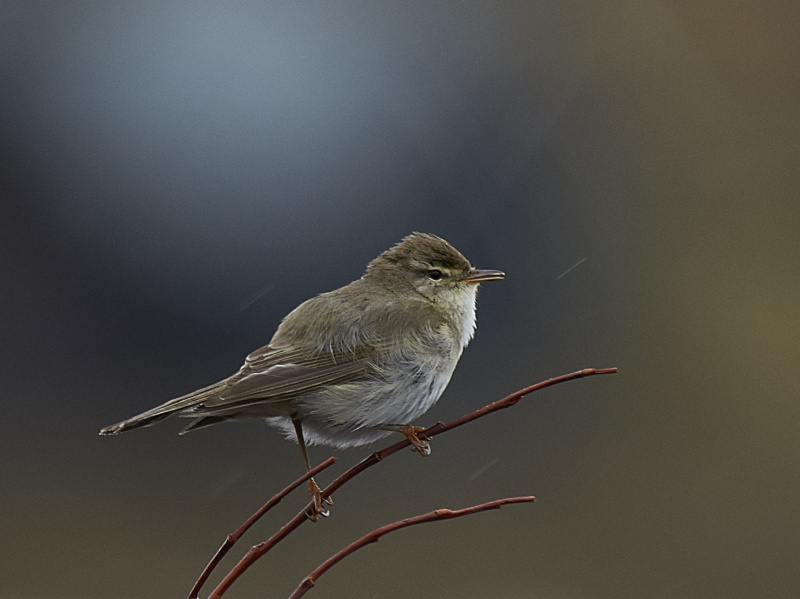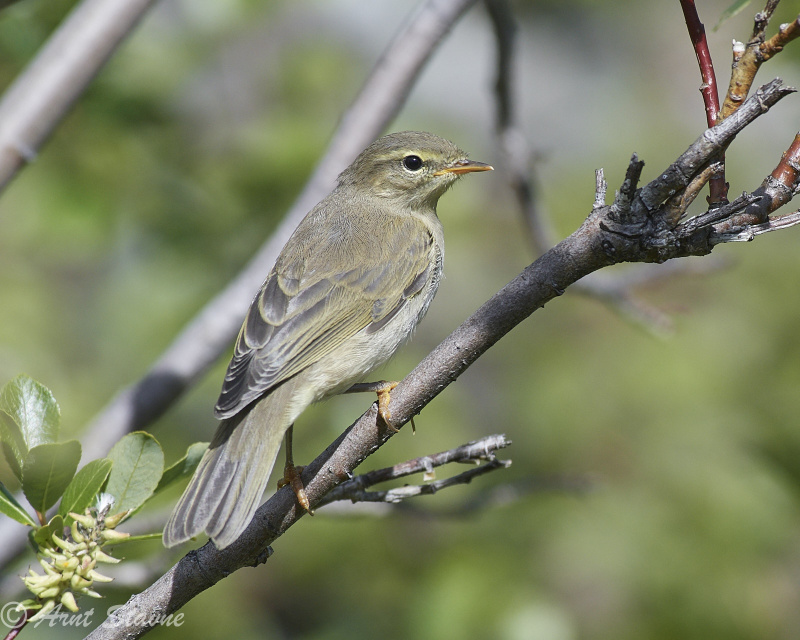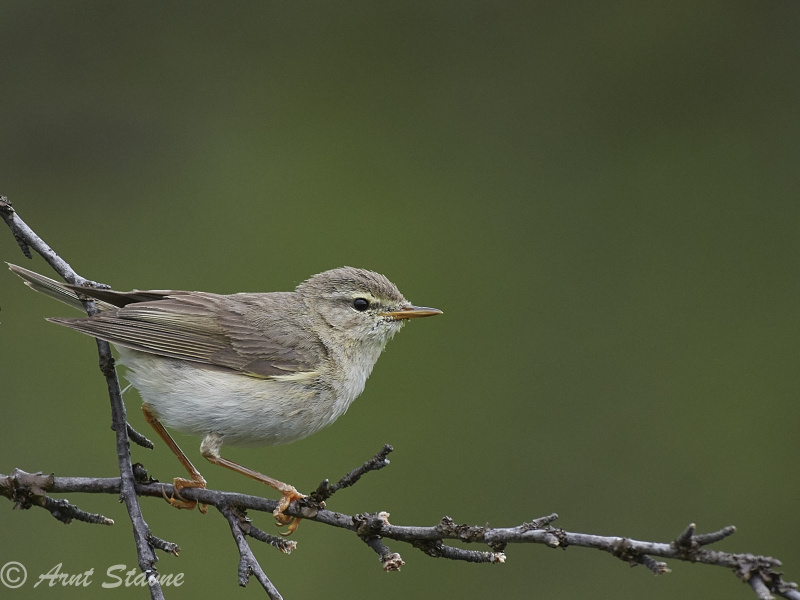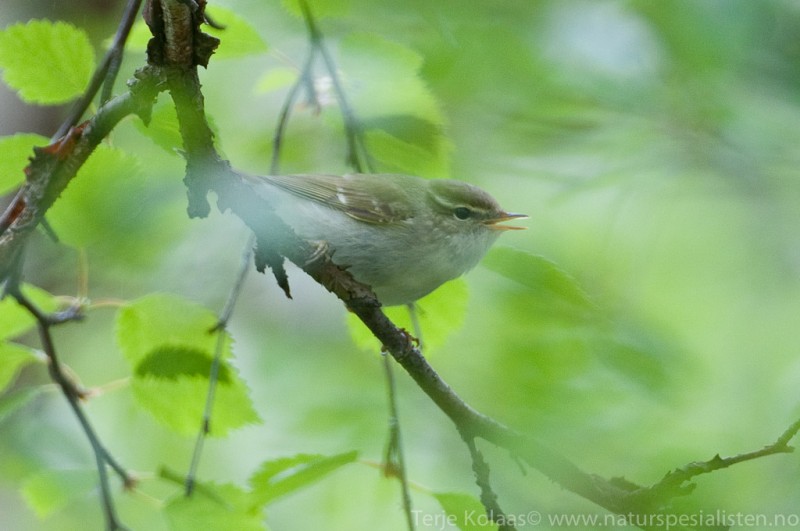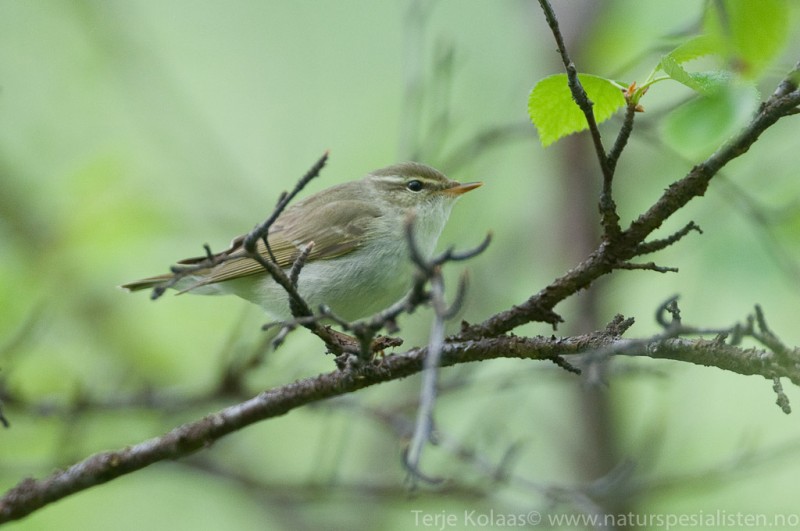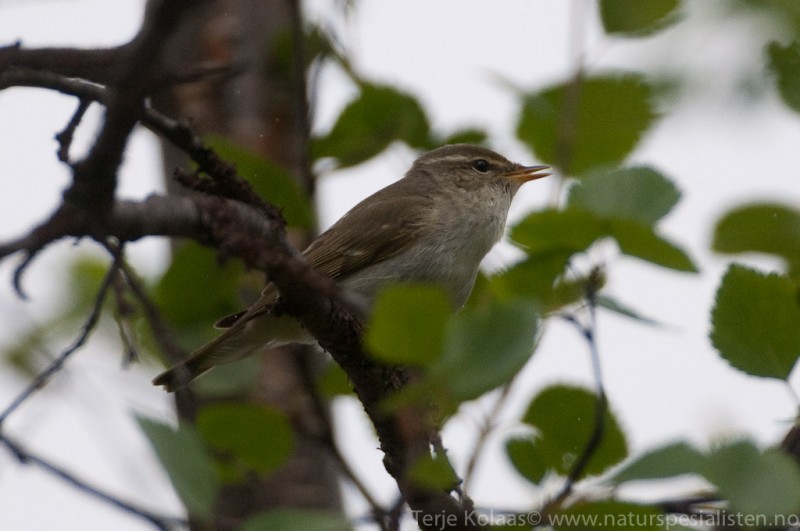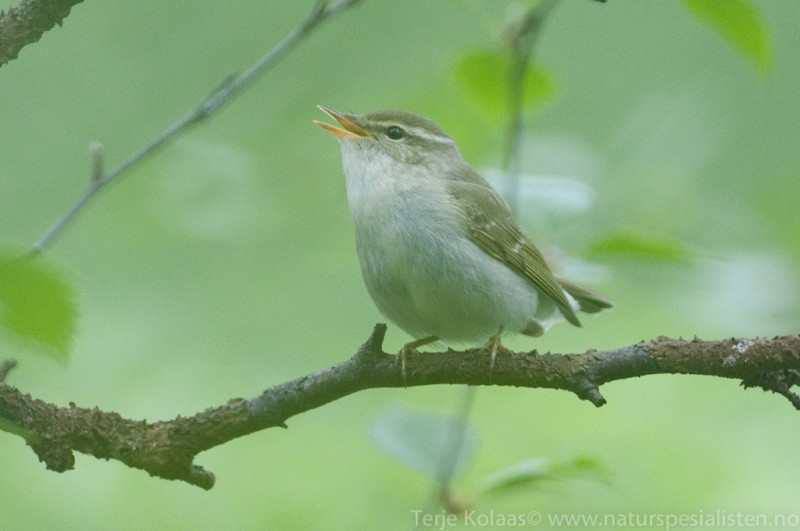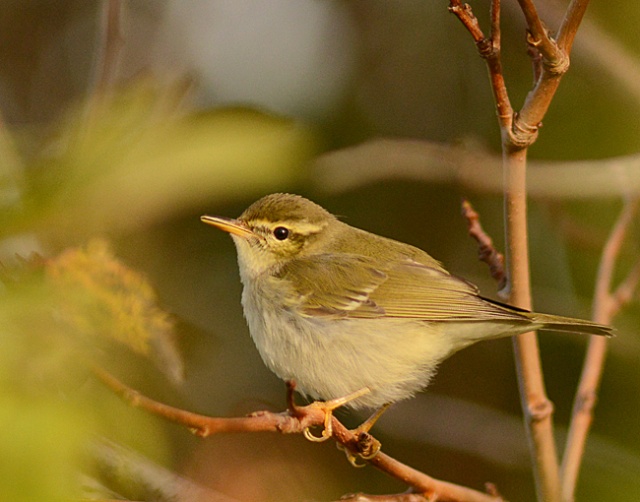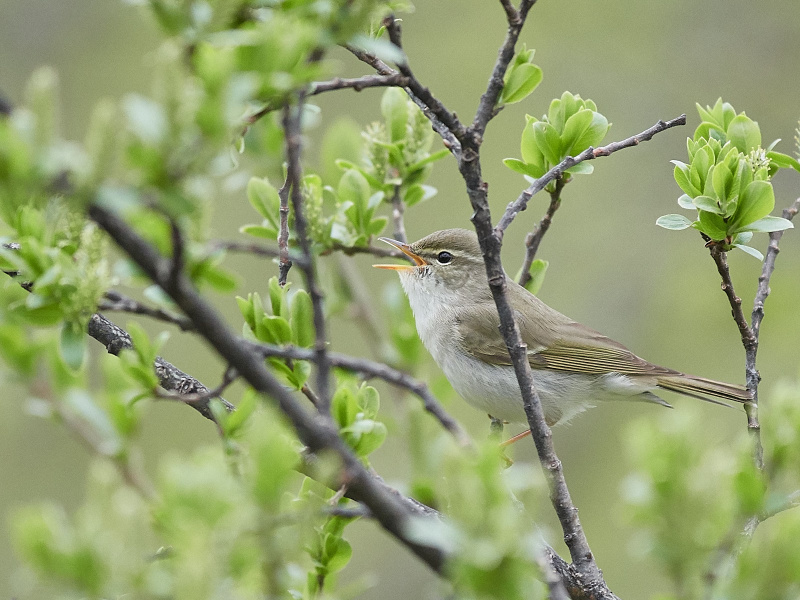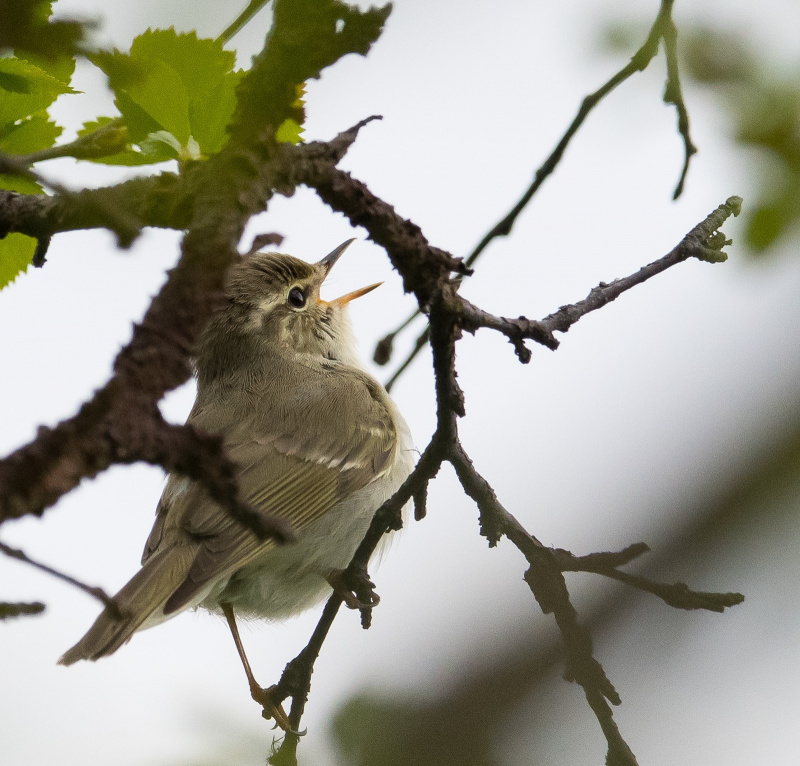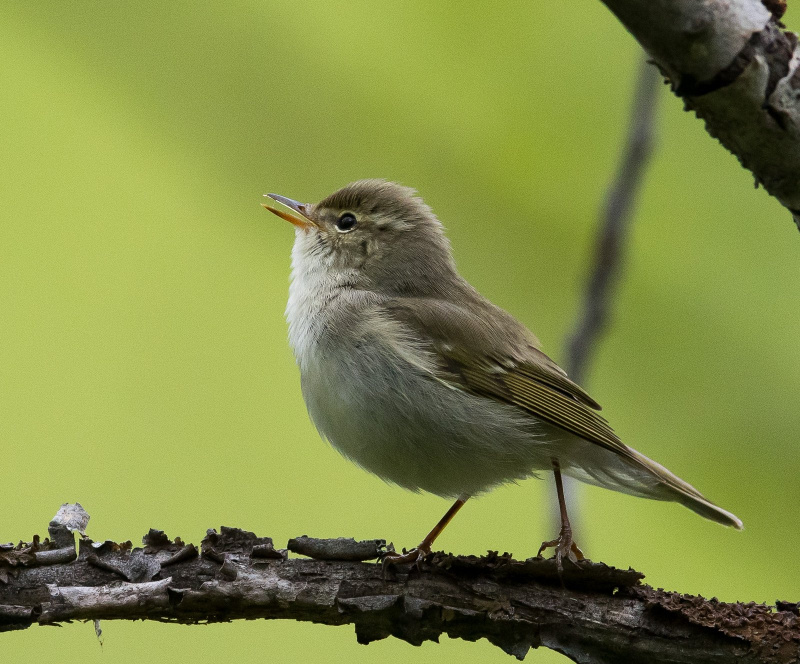Willow Warbler (Phylloscopus trochilus)
Arctic Warbler (Phylloscopus borealis)
Olive green upperparts, yellowish chest with gradual transition to off-white belly. Very similar to Chiff-chaff, and most field characters are subtle and often hard to see. Distinguished by (usually) pale, yellow-brown legs, dark framing to ear-coverts, stronger supercilium. Long primary projection (often 3/4ths the length of tertials) with irregularly spaced tips (visible when wing folded). Wings slightly more pointed than in Chiff-chaff, and not so fan-shaped. Juveniles often with whole underparts yellow. Frequently flicks tail, but not sideways (unlike Chiff-chaff). Generally also more calm when moving among the foliage.
Sound:By far most easily identified by it's call or song. Contact/alarm call a soft, plaintive ascending "hoo-eet". Similar to Chiff-chaff, but first part more drawn, giving it a disyllabic feel. Song: A 3-5 second, falling phrase of soft, rippling "svi-svi" sounds, starting high with some attack, and then falling in a mellow manner. The phrase lacks any conclusion, and diminishes both in strength and tempo.
Song:
Distribution:
Wikipedia: map (se also Xeno-canto below)
Ecology:Birdlife ecology
Links:
Observation.org Latest observations
Image search Flickr NB! May give other species
CCLike a large Willow Warbler, with distinct dark eye-stripe. Supercilium marked, but narrow. Starts at base of bill, continuing far behind eye. Wing-bar distinct on greater coverts, and sometimes on median coverts too. Primary projection long. Bill long and relatively heavy with orange base. Flanks often slightly grey, and throat sometimes with faint streaking. Appearance robust, but elegant. Moves faster and with more confidence than congeners.
Sound:Call and song diagnostic. Song a rattling series of 20-30 single syllables. Repeated as a monotonous phrase in stable pitch, lasting 2-4 seconds. Starts more softly with volume rising throughout each phrase. Contact call equally unique. A hard and short "tsrrt", recalling contact call of Dipper. Often given as introductory part of song.
Song (two variants) and calls:
Distribution:
Xeno-canto: map
Ecology:Birdlife ecology
Links:
Observation.org Latest observations
Image search Flickr NB! May give other species
CC
 English
English Albanian
Albanian
 Armenian
Armenian
 Bulgarian
Bulgarian
 Catalan
Catalan
 Croatian
Croatian
 Czech
Czech
 Danish
Danish
 Dutch
Dutch
 Finnish
Finnish
 French
French
 Georgian
Georgian
 German
German
 Greek
Greek
 Hungarian
Hungarian
 Italian
Italian
 Latvian
Latvian
 Lithuanian
Lithuanian
 Macedonian
Macedonian
 Norwegian
Norwegian
 Polish
Polish
 Portuguese
Portuguese
 Romanian
Romanian
 Russian
Russian
 Sami : Lule sami
Sami : Lule sami
 Sami : North sami
Sami : North sami
 Sami : South sami
Sami : South sami
 Scientific names
Scientific names
 Serbian
Serbian
 Spanish
Spanish
 Swedish
Swedish
 Ukrainian
Ukrainian

